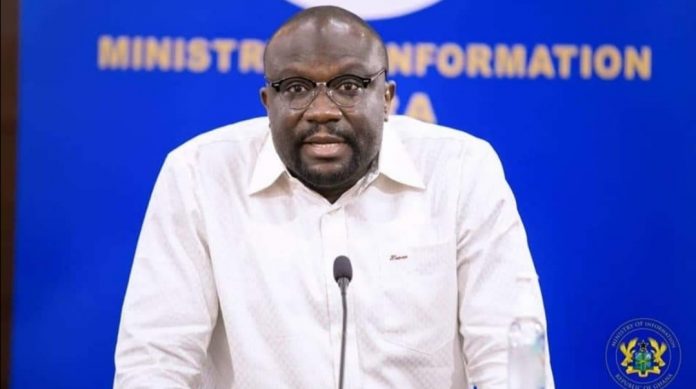The High Court in Accra, presided over by Justice Audrey Kocuvi-Tay, has granted bail totalling GHS150 million to Hannan Abdul-Wahab and his wife, Faiza Seidu Wuni, who are both standing trial in the National Food and Buffer Stock Company case.
They have pleaded not guilty to 24 counts of stealing, defrauding by false pretences, intentional dissipation of public funds, money laundering, and using public office for profit.
Hannan has been granted bail in the sum of GHS100 million with six sureties, four of whom must be justified with landed property. The Court also directed that the accused be placed on a stop-list at all entry and exit points in the country.
The sureties are to deposit copies of their Ghana Cards and are required to inform and update the Court of any change in address. The accused must report to the investigator every Wednesday until the final determination of the case, while the investigator is to file a monthly compliance report.
The second accused person, Faiza Seidu Wuni (A2), was separately granted bail in the sum of GHS50 million with four sureties, three of whom are to be justified with landed property within the Court’s jurisdiction. She is also to deposit all passports and report to the investigator every Wednesday.
The Court further directed that disclosures be filed by 27th November at 9:00 a.m. for the Case Management Conference.
During proceedings, the Deputy Attorney-General Dr. Justice Srem-Sai told the Court that the prosecution was “not opposed to bail,” but asked the Court to take into account the gravity and nature of the offences, describing them as white-collar crimes involving more than GHS115 million.
He added that the accused, being “a man of substantial means with a fixed abode in a prime area of Accra,” could pose a flight risk.
Counsel for the accused persons, Joseph Dindiok Kpemka, urged the Court to grant bail, stressing that both A1 and A2—who are a married couple with young children—had cooperated fully with EOCO investigations and never failed to appear when invited.
“When bail was granted at EOCO, they abided by all the terms. It was a shock that the sureties presented were found to be forged; we could not have verified that,” he said.
Mr. Kpemka also cited Article 19(2)(c) of the 1992 Constitution, reminding the Court that “a person is presumed innocent until proven guilty.” He added that the bail conditions should not be so stringent as to amount to a denial, since there was no evidence that the accused had attempted to evade investigations.
The case has been adjourned for a Case Management Conference on November 27, 2025, when disclosures are expected to be filed.
























































![[FREE FREE MONEY] Predict and Win a Guaranteed GH¢200 From Us EVERY WEEK](https://wordpress.ghanatalksradio.com/wp-content/uploads/2022/02/Predict-and-Win-Final-09-03-2021-218x150.jpg)
![[Predict & Win – 8th/Oct.] WIN A Guaranteed ¢200 From Us This Week](https://wordpress.ghanatalksradio.com/wp-content/uploads/2021/10/maxresdefault-16-218x150.jpg)
![[Predict & Win – 2nd] WIN A Guaranteed ¢200 From Us This Week](https://wordpress.ghanatalksradio.com/wp-content/uploads/2021/09/maxresdefault-50-218x150.jpg)
![[Predict & Win – 25th] WIN A Guaranteed ¢200 From Us This Week](https://wordpress.ghanatalksradio.com/wp-content/uploads/2021/09/maxresdefault-36-218x150.jpg)
![[Predict & Win – 18th] WIN A Guaranteed ¢200 From Us This Week](https://wordpress.ghanatalksradio.com/wp-content/uploads/2021/09/maxresdefault-23-218x150.jpg)









![[National cathedral] See full list of churches that have contributed since 2018](https://wordpress.ghanatalksradio.com/wp-content/uploads/2020/09/Ghana-National-Cathedral-GhanaTalksRadio-100x70.jpg)


